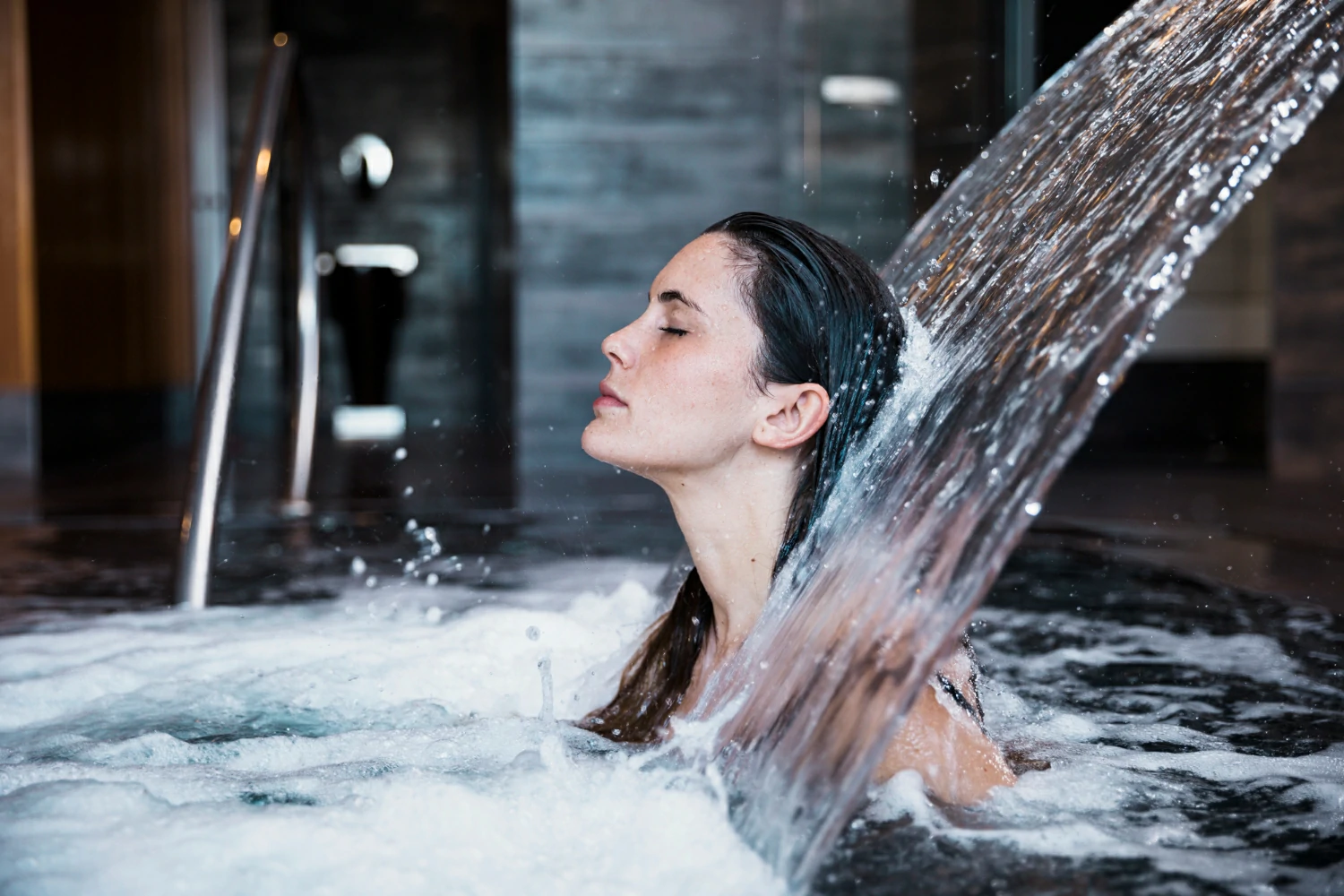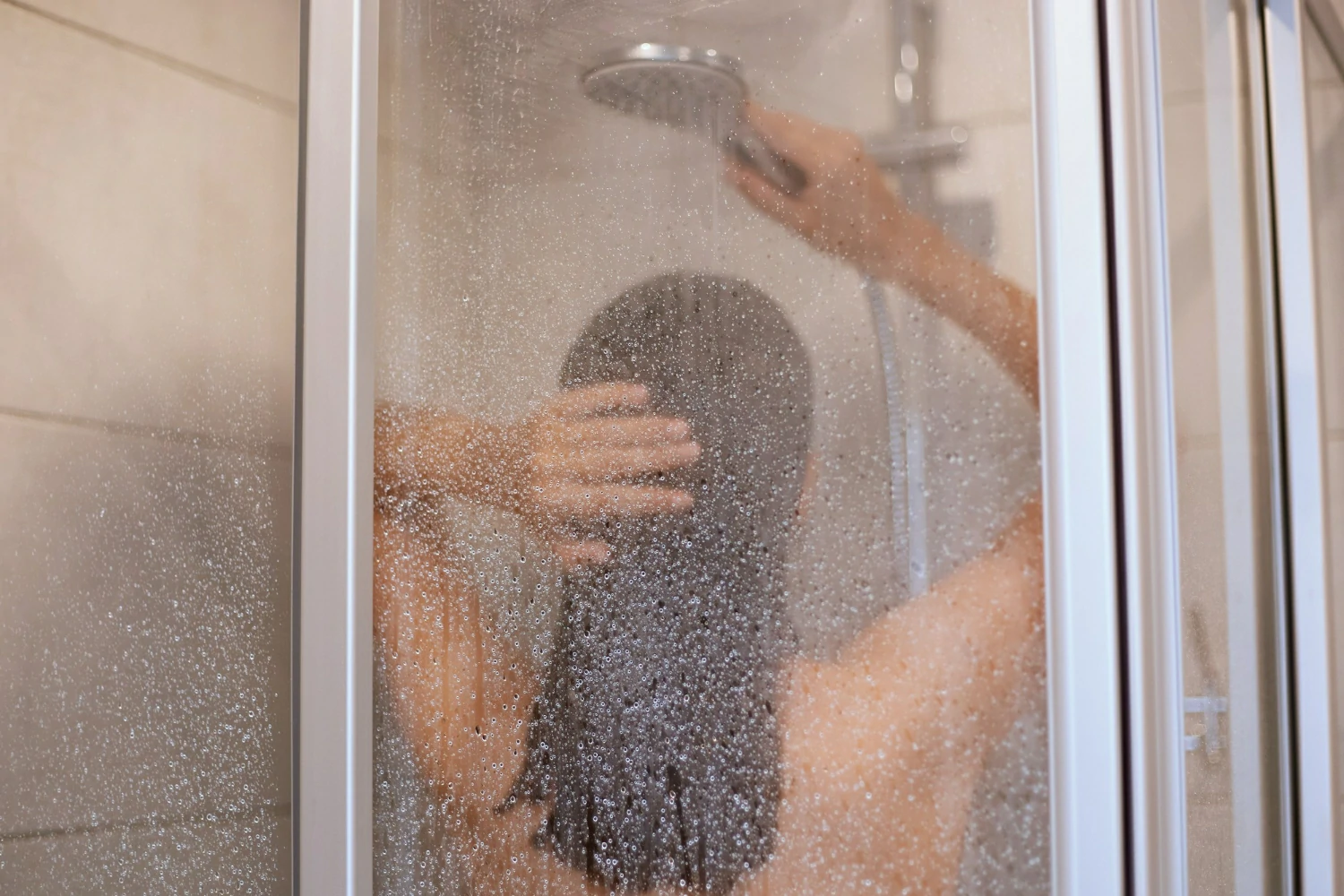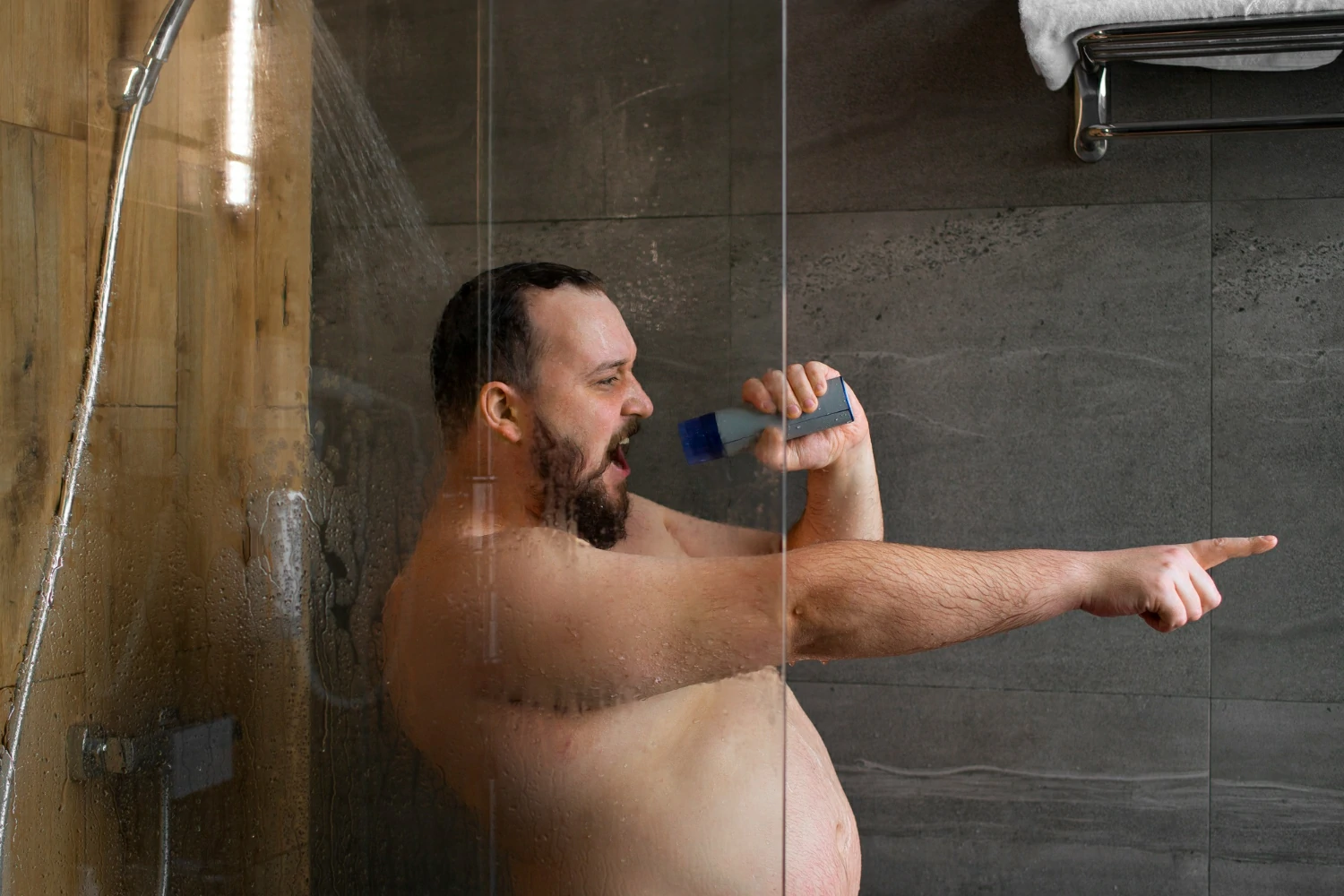Do hotels have unlimited hot water? Answer is – Hotels don’t technically have unlimited hot water, but they use sophisticated systems to ensure a consistent supply. These include large storage tank heaters, on-demand tankless heaters, or combinations of both. Even with high guest usage, a well-equipped hotel should be able to provide hot water without guests running out.
Summary
- Hotels don’t have truly unlimited hot water, but they have ways to meet high demand.
- Common systems include storage tank heaters, tankless heaters, or a hybrid approach.
- Factors like hotel size, water heater type, and guest usage influence hot water availability.
- While rare, it’s possible to run out of hot water in a hotel during extremely busy periods.
Hot Showers? How Hotels Manage Hot Water Demand

After a long day of travel or exploring a new city, there’s nothing quite like the promise of a relaxing, hot shower or bath in the comfort of your hotel room. Hot water is an essential amenity – it’s vital for hygiene, relaxation, and overall guest satisfaction.
But have you ever wondered how hotels manage to consistently supply hot water, even when the building is packed with guests? Let’s dive into the world of hotel water heating and explore the systems that make your hot shower possible.
The Importance of Hot Water for a Comfortable Hotel Stay
Beyond basic hygiene, hot water plays several crucial roles in enhancing the hotel guest experience:
Comfort and Relaxation: A warm shower or bath can wash away the stresses of the day, soothe tired muscles, and promote a sense of well-being. Especially in colder climates, hot water is essential for warming up and feeling truly at ease in your room.
Cleanliness: Hotels rely on hot water for a multitude of cleaning tasks. From laundering linens and towels to sanitizing dishes and kitchen equipment, a lack of hot water would severely compromise hygiene standards.
Guest Satisfaction: Running out of hot water is a major inconvenience that can lead to negative reviews and tarnish a hotel’s reputation. Ensuring a reliable hot water supply demonstrates a commitment to guest comfort.
Questions Guests Have About Hotel Hot Water Supply
It’s natural for guests to have questions and concerns about the hot water in their hotel rooms. Some common inquiries include:
Will I run out of hot water? Most guests want the peace of mind of knowing they can enjoy a hot shower or bath without the water suddenly turning cold.
How long does it take for the water to heat up? Guests appreciate quick access to hot water, especially when they’re in a hurry or trying to conserve energy.
Is the hot water system environmentally friendly? Sustainability-conscious travelers might be interested in whether the hotel uses energy-efficient water heating methods.
Sarah Peterson Expert Opinion
“A reliable hot water supply is a hallmark of a well-run hotel,” says Sarah Peterson, a hospitality consultant with over 15 years of experience. “It’s not just about the volume of hot water, but also the consistency of temperature and how quickly it’s available. Guests notice these details, and they directly impact their perception of the hotel’s quality.”
How Do Hotels Provide Hot Water?

While several technologies exist, let’s explore the traditional workhorse of hotel water heating: storage tank water heaters. These systems have been a mainstay for decades, providing reliable hot water for countless hotels.
1. Storage Tank Water Heaters
How They Work
At their core, storage tank water heaters are fairly simple. They consist of a large, insulated tank that holds a substantial volume of water. This could range from hundreds to thousands of gallons, depending on the hotel’s size.
Heating elements (powered by gas or electricity) are located within the tank. These elements heat the water to a preset temperature, usually in the range of 120-140 degrees Fahrenheit for optimal safety and sanitation.
The insulation around the tank helps minimize heat loss, keeping the stored water hot for extended periods.
As hot water is used in guest rooms, showers, or other hotel facilities, cold water enters the tank to refill it. The heating elements then kick in to bring the new water up to temperature.
Capacity and Limitations
The main advantage of storage tank systems is their capacity. Having a large reservoir of hot water on hand allows hotels to handle significant demand spikes.
However, there are limitations. Once the tank’s supply of hot water is depleted, it takes time for the heating elements to replenish it. During periods of extremely high usage, it’s possible for guests to temporarily run out of hot water until the tank has a chance to catch up.
Additionally, storage tank heaters occupy a considerable amount of space within the hotel’s mechanical systems. Large hotels may have dedicated boiler rooms to house them.
Energy efficiency can be a concern. Since stored water is constantly being kept hot, there’s some standby heat loss even when demand is low.
James Wilson Expert Opinion
“Storage tank heaters are tried-and-true technology for hotels,” explains James Wilson, a building engineer specializing in hotel plumbing systems. “Their size makes them ideal for meeting large hot water needs, but hotels need to carefully calculate their capacity to avoid shortages during busy times.”
2. Tankless (On-Demand) Water Heaters
How They Work
Tankless water heaters offer a fundamentally different approach to heating water. Instead of storing a large volume of hot water, they use powerful heating elements (gas or electric) to instantly heat water as it flows through the unit.
When a guest turns on a hot water faucet or shower, cold water passes through the tankless heater. The unit senses the flow and ignites the heating elements, bringing the water up to the desired temperature within seconds.
Since no hot water is stored, tankless heaters are significantly more compact than their storage tank counterparts.
Advantages and Potential Drawbacks
Advantages:
- Potentially Unlimited Hot Water: As long as the tankless heater has sufficient capacity, it can continue heating water on demand, virtually eliminating the risk of running out.
- Energy Efficiency: By only heating water when needed, tankless heaters minimize standby heat loss, leading to lower energy bills.
- Space-saving: Their compact size makes them ideal for hotels with limited mechanical room space.
Potential Drawbacks:
- Peak Demand Limitations: Extremely high simultaneous demand (everyone showering at once) could strain some tankless systems if they aren’t sized appropriately.
- Flow Rate Considerations: Tankless heaters often have a maximum flow rate they can handle, meaning turning on multiple hot water fixtures at once could impact temperature.
- Higher Upfront Cost: Tankless units are generally more expensive to purchase and install compared to traditional storage tank heaters.
3. Hybrid Systems
Combining Tank and Tankless Heaters for Optimal Supply
Increasingly, hotels are discovering the benefits of combining storage tank and tankless technologies into hybrid systems. This approach leverages the strengths of both:
Base Supply: A storage tank provides a baseline of readily available hot water to handle regular demand.
Peak Demand Support: Tankless units kick in during periods of high usage, ensuring guests still have hot water even if the storage tank is temporarily depleted.
Redundancy: If one type of heater fails, the other can partially compensate, minimizing disruption to hot water service.
Sarah Peterson Expert Opinion
“Hybrid systems are the future of hotel water heating,” asserts Sarah Peterson, a hospitality consultant. “They provide the reliability of a large hot water reserve with the on-demand capabilities to handle any demand surges hotels might face.”
Factors Affecting Hot Water Availability in Hotels

While hotels invest in robust water heating systems, the reality is that hot water availability isn’t always a guarantee. Here’s a breakdown of the key factors that come into play:
1. Hotel Size and Occupancy
Larger Hotels, Greater Demand: Simply put, a bigger hotel with more guest rooms places a larger demand on the hot water system. Even with powerful water heaters, there’s a limit to how much hot water can be produced instantaneously.
High Occupancy Challenges: When a hotel is at or near full capacity, the risk of hot water shortages increases, especially during peak usage times (which we’ll discuss shortly). Hotels facing consistently high occupancy may need to invest in larger-capacity heaters or a greater number of them.
2. Type and Number of Water Heaters
Storage Tank Capacity: If a hotel relies primarily on storage tank heaters, the size of these tanks is critical. Undersized tanks for the hotel’s needs will lead to guests running out of hot water more frequently.
Tankless Heater Limitations: While tankless heaters offer on-demand convenience, they might have limitations in the total flow rate they can handle. A hotel opting for tankless systems needs to carefully calculate its potential maximum demand to ensure enough units are installed.
The Advantage of Multiple Units: Having several smaller water heaters, rather than one giant one, can provide some redundancy. If one heater malfunctions, the entire hotel won’t be left without hot water.
3. Peak Usage Times
The Morning Rush: Most guests shower in the morning as they prepare for the day. This concentrated period puts the greatest strain on a hotel’s hot water supply.
Evening Impacts: Evenings can also be a high-usage time, with guests showering after a day of activities or before dinner.
Off-Peak Advantages: If you’re a hotel guest looking to avoid hot water contention, try showering in the middle of the day or late at night when overall demand is lower.
4. Water Heater Maintenance
Neglected Systems = Problems: Just like any mechanical equipment, water heaters require regular maintenance to function optimally. Neglected heaters can develop issues like sediment buildup in tanks or faulty heating elements, reducing efficiency and hot water output.
Preventing Breakdowns: Proactive maintenance helps prevent unexpected breakdowns that could leave guests completely without hot water. Hotels should have a rigorous schedule for inspecting, flushing, and servicing their water heating systems.
James Wilson Expert Opinion
“It’s not just about the size of the water heaters, but also how well they’re maintained,” emphasizes James Wilson, a building engineer specializing in hotel plumbing systems. “A preventative maintenance program is the best insurance policy a hotel can have to avoid hot water complaints from guests.”
What Does It Mean If You Run Out of Hot Water in a Hotel?

While it’s certainly an inconvenience, it’s important to remember that running out of hot water in a hotel doesn’t automatically mean there’s a major problem. Let’s explore some possible causes:
1. Possible Causes of Hot Water Shortages
Temporary High Demand: Hotels are designed with robust hot water systems, but extreme spikes in demand (think everyone showering at once before a big event) can temporarily drain the reserves, especially if the system relies on storage tank heaters.
Undersized Water Heaters: If the hotel has grown since it was built, or consistently experiences high occupancy, its existing water heaters might simply not have sufficient capacity.
Heater Malfunction: Mechanical breakdowns happen. A faulty heating element, broken thermostat, or other issues within a water heater could diminish its output or stop it from working altogether.
Maintenance Neglect: Water heaters that haven’t been properly maintained are prone to issues like sediment buildup, which reduces efficiency and hot water volume.
2. Troubleshooting Steps for Guests
If your hot water runs out, here’s what you can do:
Wait a Little While: Give the system some time (15-30 minutes) to catch up. If it was just a temporary surge in demand, the hot water should return shortly.
Check Other Faucets: See if the problem is isolated to your shower or if all the hot water fixtures in your room are affected. This can help narrow down the cause.
Be Mindful of Your Own Usage: If you’ve taken an exceptionally long shower, that might be the main factor!
Report the Issue: Contact the front desk promptly to alert them to the problem. This allows them to investigate and take corrective action.
3. Hotel Responsibilities in Addressing the Issue
A reputable hotel takes concerns about hot water seriously. Here’s what you should generally expect:
Acknowledgment and Investigation: The hotel should acknowledge your feedback and start investigating the root cause.
Technical Assistance: Maintenance staff will be dispatched to assess the water heater, troubleshoot, and make repairs if necessary.
Temporary Solutions: If repairs will be delayed, the hotel might offer you a different room with functioning hot water, or in rare cases, could provide a partial discount if the issue severely impacted your stay.
Sarah Peterson Expert Opinion
“Most of the time, hot water issues in hotels are temporary and easily resolved,” explains Sarah Peterson, a hospitality consultant. “The key is for guests to communicate the issue promptly, and for hotels to have systems in place to respond quickly.”
Can You Prevent Running Out of Hot Water in a Hotel?

1. Tips for Conserving Hot Water During Your Stay
Shorter Showers Are Better: The single most impactful thing you can do is limit your shower time. Aim for efficient 5-10 minute showers rather than luxurious, extended soaks.
Turn Off the Tap: Don’t let the water run continuously while brushing your teeth, shaving, or washing your hands. A little mindfulness goes a long way.
Space Out Showers: If traveling with others, try staggering your shower times instead of everyone showering back-to-back. This gives the system time to recover.
Report Drips and Leaks: If you notice any leaky faucets or running toilets in your room, alert the hotel immediately. Even small leaks waste water and put extra strain on the system.
Reuse Towels: Many hotels participate in programs where you can opt to keep your towels for multiple days instead of having them replaced daily. Fewer towels to launder mean less hot water usage.
2. Choosing Hotels with Robust Water Heating Infrastructure
It’s savvy to factor in a hotel’s hot water systems when making your booking decision. Here’s what to look for:
Hotel Age and Renovations: Newer hotels are more likely to be built with modern, high-capacity water heating systems in mind. If staying at an older hotel, inquire if they’ve had any recent upgrades to their plumbing and water heating infrastructure.
Tankless or Hybrid Systems: Hotels that advertise tankless water heaters or hybrid systems generally have an advantage when it comes to meeting high hot water demands.
Online Reviews: Check out what previous guests have said about the hot water situation. While occasional complaints can be isolated incidents, a pattern of issues could raise a red flag.
Sustainability Commitment: Hotels that have a strong emphasis on sustainability are more likely to invest in efficient water heating technologies that conserve resources.
Emily Anderson Expert Opinion
“Being mindful of your water use is good practice wherever you are, and that includes on vacation,” says Emily Anderson, an environmental sustainability specialist in the hospitality sector. “Guests can make a positive difference and potentially help ensure better hot water availability for themselves and others.”
Conclusion
While the dream of an endless hot shower might not always be a reality at hotels, understanding the systems in place can give you greater peace of mind as a guest.
Most hotels are equipped with sophisticated water heaters designed to handle significant demand. Temporary shortages, while frustrating, are usually just that – temporary.
By being a mindful water user, communicating promptly with the hotel if issues arise, and choosing properties with a commitment to modern water heating technology, you can greatly improve your chances of enjoying a consistently hot and relaxing shower during your hotel stay.
FAQs
Q: Should I let the hotel know if I run out of hot water?
Absolutely! Alerting the front desk is crucial. It allows them to investigate the cause and potentially prevent the issue from affecting other guests.
Q: How long does it take for hot water to come back after it runs out?
This varies widely. If it was just a temporary drain on the system, it could return in 15-30 minutes. If there’s a mechanical problem, it could take longer, depending on the hotel’s resources and the time of day.
Q: Can I get compensation if my hotel runs out of hot water?
It’s possible, but not guaranteed. If the hot water outage significantly impacted your stay and the hotel didn’t adequately address it, you can try negotiating a partial refund or discount. Documenting the issue and the hotel’s response will strengthen your case.
Q: Are tankless water heaters better for hotels?
They offer significant advantages in terms of on-demand supply and energy efficiency. However, hotels need to carefully choose tankless heaters powerful enough for their peak demand, and a hybrid system might be the most balanced solution.
Q: Do hotels ever intentionally restrict hot water?
While extremely rare, some older hotels might have flow restrictors or temperature limiters as a drastic water conservation measure. It’s best to inquire about a hotel’s water heating policies if you have concerns.







